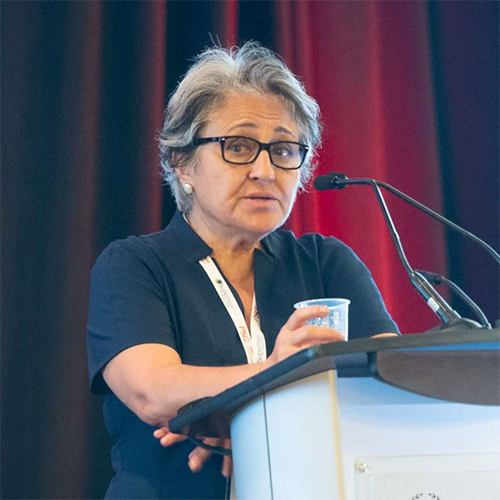![]()
 Haydeh Payami, Ph.D.Haydeh Payami, Ph.D., professor in the Department of Neurology, is the latest winner of the Heersink School of Medicine’s Featured Discovery. This initiative celebrates important research from Heersink faculty members.
Haydeh Payami, Ph.D.Haydeh Payami, Ph.D., professor in the Department of Neurology, is the latest winner of the Heersink School of Medicine’s Featured Discovery. This initiative celebrates important research from Heersink faculty members.
Payami’s study, “Metagenomics of Parkinson’s disease implicates the gut microbiome in multiple disease mechanisms," was recently published in Nature Communications.
Payami and her team reported widespread alterations in the gut microbiome of persons with Parkinson’s disease (PD) and identified the drivers of this dysbiosis at species and microbial genes and pathways levels.
“A key goal of this study was to produce not only the largest PD metagenomics data set to date but also a high-quality data set and accompanying analysis to provide a robust resource for the field,” said Zachary D. Wallen, Ph.D., co-author of this study and a postdoctoral fellow in Payami’s lab. “A lot of effort and painstaking attention to detail went into this study to make that a reality, and I certainly think we achieved that goal here.”
Read more from UAB News about the team’s work.
The Heersink School of Medicine communications staff sat down with Dr. Payami to gain insight into this study, UAB, and the science community.
 Zachary D. Wallen, Ph.D.
Zachary D. Wallen, Ph.D.
Q: What compelled you to pursue this research?
I am interested in finding all the pieces that must come together to make up a complex disease like PD. I have studied genetics of PD, which now stands at over 100 genes, and I have investigated interaction of the human genome with PD-associated environmental factors, and I have not yet seen a single causative combination. If not genes or environment, what else is there to study? In 2014, the ‘microbiome’ concept was just emerging. I pivoted to pilot a microbiome study and moved to UAB in 2015. Three papers later, the U.S. Department of Defense funded the discovery phase of this study, and Aligning Science Across Parkinson’s via the Michael J. Fox Foundation is funding the follow-up functional studies in organoids and model systems.
Q: What was your most unexpected finding?
My most unexpected finding in this study was the slow awakening to the importance of microbiome in PD. I was skeptical and expected the evidence to go away, but it kept getting more compelling. At this point, we see a widespread dysbiosis that mirrors the mechanisms that we have known to drive PD, putting the gut microbiome in the center of PD pathogenesis. We see in gut dysregulation in synthesis and metabolism of the neurotransmitters dopamine, glutamate, and serotonin, overabundance of opportunistic pathogens and immunogenic molecules, overproduction of toxicants, elevated levels of molecules that degrade the gut barrier, depletion of species with anti-inflammatory properties, and enhanced degradation of neuroprotective molecules. To think, 10 years ago, we were clueless that microbiome might have anything to do with PD.
Q: How do you feel your research will impact the science community?
It was proof of principle that there is vast information content in the gut microbiome for complex disorders, not only for PD, but possibly other common disorders that, despite decades of gene discovery and epidemiological studies, are not completely solved. It was a solid study, one of the largest microbiome studies conducted to date at high resolution with robust methods. We have made all the data and methods public for all researchers to use, which is a substantial contribution to open science. The paper has caught the attention of 28,000 readers so far. What they will take away from it and how it will impact research, only time can tell.
Q: What is your research’s relevance to human disease?
Our research helps us identify causes and modifiers of PD that, in turn, could lead to new treatments. Can pathogens or toxicants in the gut cause PD? Can PD start in the gut and spread from the gut to the brain? What in microbiome contributes to disease severity and progression? Does PD make microbiome sick? What is the cause, and what is the consequence? All these questions are directly relevant to the treatment and management of PD. Harmful microbes that are elevated can be brought down by dietary strategies, or antibiotics. Good microbes that are depleted can be reintroduced in special microbial cocktails in conjunction with a diet that make them flourish. If the dysbiosis is too vast, or cannot be handled with targeted therapies, a fecal microbiome transplant is an option. The beauty of microbiome is that we can study it with molecular precision at the microbial DNA level, and, unlike human DNA, which is hard to change, we can fix the gut microbiome.